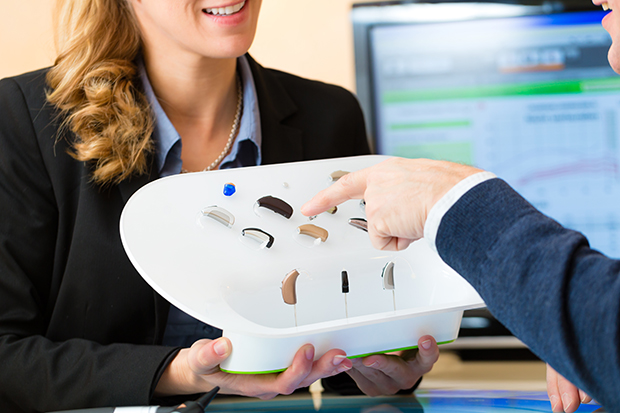
Submitted by Central Illinois Hearing and Balance Center
Being an informed healthcare consumer is hard work. There is information everywhere, but how do you sift through it and make sense of it all? How do you know what is reliable and what isn’t?
Sorting through the noise when buying hearing aids is no exception.
In the past several months, there has been significant media coverage and social media discussion about the Over-the-Counter Hearing Aid Act of 2017, which will make certain types of hearing aids available over the counter in the next several years. At the same time, there are many advertisements about devices called Personal Sound Amplification Products (PSAPs) — which are not hearing aids and are not designed to treat hearing loss — adding to the confusion.
To help consumers cut through the clutter, the Better Hearing Institute (BHI) has pulled together six essential facts for people with hearing loss who are considering the purchase of hearing aids.
BHI recommends that anyone who is ready to address their hearing loss keep these six points in mind:
- Addressing hearing loss promptly and appropriately is important for health and quality of life. Research shows that hearing loss is linked to cognitive decline and dementia, depression, an increased risk of falls and hospitalization, and greater healthcare costs. Hearing loss also is linked to cardiovascular disease, diabetes, moderate chronic kidney disease, obesity, sleep apnea, and rheumatoid arthritis.
- Hearing loss is not a simple mechanical issue and cannot be remedied as easily as buying a pair of reader glasses at the grocery store. Hearing loss is a complex sensory loss. It involves brain function and frequency losses specific to the individual. Human hearing involves a multifaceted interplay between specific parts of the ears and brain. For this reason, hearing aids — which are designed specifically to compensate for hearing loss — must be cleared by the U.S. Food and Drug Administration (FDA) to ensure safety and efficacy.
- Hearing aids need to be custom-fitted and programmed specifically for the individual so that they correctly address those specific frequencies the individual has trouble hearing. The beauty of medical hearing aids is that they’re tailored — through personalized fitting, programming, and follow-up adjustments — to correctly address those specific frequencies the individual has trouble hearing. This gives the wearer the greatest benefit and ensures that the level of amplification is appropriate across the entire frequency spectrum. Follow-up hearing aid adjustments, along with training to help consumers adjust to amplification and re-learn how to hear and process sounds they had been missing, further increase user satisfaction.
- Personal sound amplifiers (PSAPs) are not hearing aids and are not cleared by the FDA to treat hearing loss. Consumers need to be careful not to confuse hearing aids with PSAPs, which simply turn up the volume — sometimes to dangerously high decibel levels — regardless of the individual’s specific hearing needs. Over-amplifying in this way may put the consumer at risk of greater hearing damage.
- Seeing a doctor of audiology, not just a hearing aid specialist, is the best safety net for proper diagnosis and treatment. An audiologist can ensure that any underlying medical issue behind a hearing loss is identified and addressed. It also helps ensure that the person’s hearing loss is safely and effectively treated. An audiologist that works in a practice with ENT doctors has the most appropriate and accurate equipment to give a precise read of an individual’s current hearing level.
- Currently, hearing aids are only sold by licensed hearing-care professionals. Today, real hearing aids cannot be purchased in the U.S. without the involvement of a licensed hearing care professional. The way hearing aids are sold, however, will change in a few years due to the Over-the-Counter Hearing Aid Act of 2017, which was signed into law in August 2017. Nevertheless, the complex nature of hearing loss will not change. The safest thing consumers can do for their hearing is to seek professional hearing health care advice from the start.
Most people with hearing loss can benefit from custom-fitted and programmed hearing aids. In fact, 91 percent of people who purchased hearing aids in the last year say they are happy with their purchase, and 90 percent say they would recommend getting hearing aids to family members and friends.
For more information about hearing aids or hearing loss, contact the audiologists at the Central Illinois Hearing & Balance Center at 309-661-0232 or online at CIHearing.com. Their office is located at 808 S. Eldorado Rd., Suite 2 in Bloomington. They work in close partnership with Dr. Finn R. Amble, who is an ear, nose, and throat physician, to diagnose and treat hearing loss.

